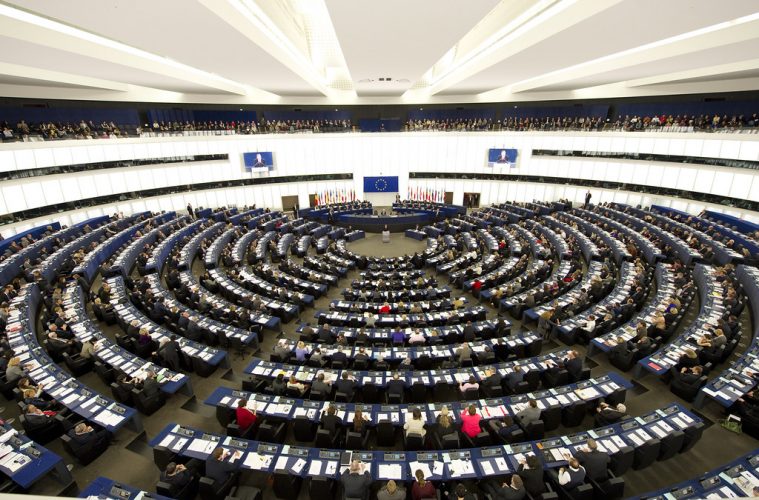By Darcy French
Europe is grappling with its identity, and debates over the future of the Union have reached the polls in European elections held in May. Results show decisive increases in support for anti-immigration, eurosceptic parties as well as for environmentalist, globalist movements. This has been at great cost to establishment political groupings who have left an increasing number of Europeans alienated with the status quo.
The result is a new-look parliament, with a greater diversity of parliamentarians across the continent, and a more polarised European transnational political landscape. This will shake-up the ruling blocs of the European parliament.
However, results across the continent are by no means uniform, with nationalistic, eurosceptic parties surging in some states, and underperforming in others. Likewise, pro-EU groupings have succeeded in galvanising support in many countries, providing a bulwark against the populist sentiment that has dominated European political narratives in previous years. Rising support for environmentalist movements will be welcome news for progressive Europeans, yet the battle for Europe’s future appears to be raging more strongly than ever.
In the United Kingdom, Nigel Farage’s Brexit party (31 percent) leads the results in a terrible election for the two main parties, with Labor in third place (14%) and the Conservatives falling back to fifth place with only 9 percent of the vote. Whilst the Brexit party are clearly the largest benefactors of the establishment slump, the greens (12 percent) have also seen a gain in their vote, while the surprise of the election appears to be the pro-EU Liberal Democrats, who garnered 20 percent of the vote in a result few expected.
Across the channel in France, Marine Le Pen’s rebranded Rassemblement Nationale won 24 percent of the votes ahead of president Emmanuel Macron’s La Republique en Marche! (22.5 percent). The environmentalist greens had a strong showing, gathering approximately 13 percent of the vote in what leader Yannick Jadot described as a “ green European wave”. The surprising surge in support for the greens, and the strong showing by Le Pen’s nationalist RN and Macron’s LReM, has left the establishment center-right party, Les Republicains, with a dismal result of only 8 percent.
The results in France show the polarisation of French society, with a quarter of voters supporting the nationalistic RN. However, with 26 percent of votes shared between the environmentalist and socialist parties of Les Verts, L’Envie d’Europe and Jean-Luc Melenchon’s La France Insoumise, progressive environmental and economic movements are still a powerful force in French politics. President Emmanuel Macron’s La Republique en Marche will be disappointed to have fallen short of first place, but with 22 percent of the vote will help the newly formed Renew Europe form a commanding bloc in the European Parliament.
Elsewhere in Europe, results are varied. In Slovakia, president-elect Zuzana Čaputová has led a pro-EU coalition to victory with 20 percent of the vote, with the nationalist Our Slovakia party winning only 12 percent of the vote.
In Hungary, nationalist leader Viktor Orban’s anti-immigration Fidesz party have dominated electoral results, gathering 52 percent of the vote. Hungarian foreign minister, Péter Szijjártó, claimed that the result shows the growing mistrust towards the EU in Hungary, and increasing disenfranchisement with European politics.
Spain’s results mirrored parliamentary elections in April, with the socialist PSOE party gaining 33 percent of the vote. The far-right party Vox saw a 4 percent drop in its votes compared to the recent national election, arriving in fifth position with 6 percent of the vote.
The greens, buoyed by strong results in France and the UK, also enjoyed impressive results in Ireland, Germany, and Portugal.
As the dust began to settle on that great weekend for democracy, the makeup of the European parliament has begun to take shape. The big winners appear to be the Greens who are poised to increase their seats from 50 to 75, and the loosely aligned eurosceptic/nationalist bloc who are set to hold 116 seats. The successor of the pro-EU ALDE, Renew Europe, looks to increase its seat share from 67 to 106 seats.
Amongst the losers are the European People’s Party, whose seat share decreases from 221 to 179, and the Socialists and Democrats group, who decline from 191 seats in 2014 to only 153 in the new parliament.
The new European parliament will be more fractured, with governing centrist blocs forced to work alongside strengthened Eurosceptic and nationalist groupings, and an invigorated environmentalist, progressive movement. How the European parliament reconciles its diverse range of opinions, reflecting the diverse opinions of the European people, will be crucial at a time when polled support has never been higher, but vocal populist movements across the continent threaten its very foundations.♦
Darcy French is enrolled in the dual degree Sciences Po–Peking University.
Featured Image: Secretary-General Addresses European Parliament on Anniversary of Rights Convention [United Nations Photo/Flickr]

